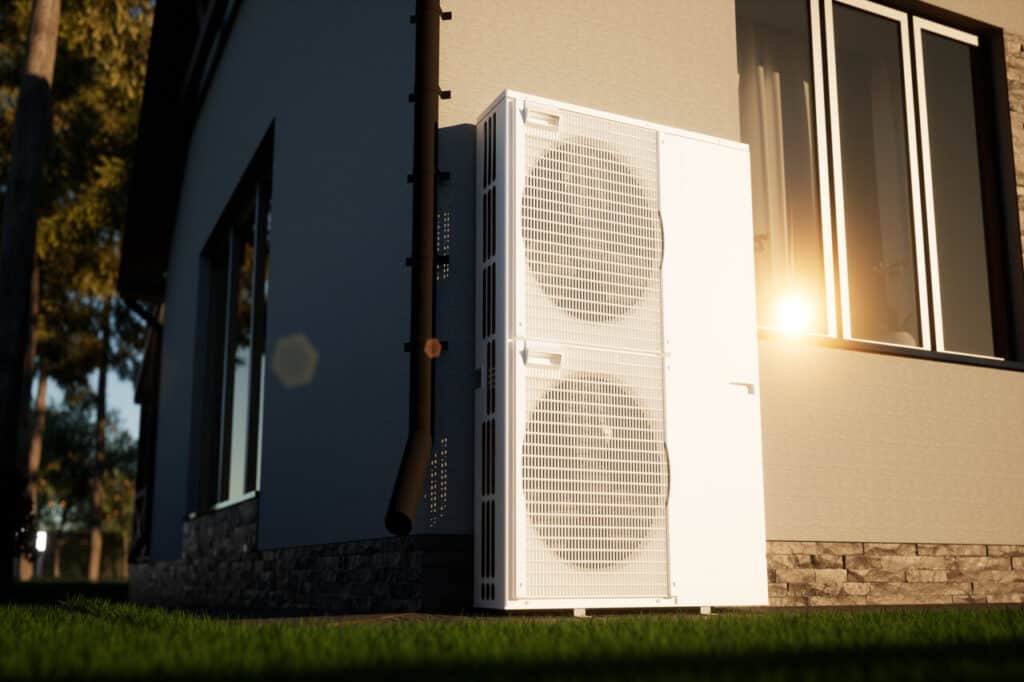Heat pumps have emerged as an increasingly popular and eco-friendly solution for home heating and cooling needs. Heat pumps provide reliable, energy-efficient temperature control by transferring heat between the indoors and outdoors, reducing reliance on traditional heating and cooling methods. As a Canadian-owned and operated company serving the Durham region, GTA, and surrounding areas, Climate Experts is committed to helping homeowners better understand the benefits, types, and installation process of heat pumps to make informed decisions for their year-round comfort needs.
Our team of bonded, licensed, and insured technicians offers exceptional customer service and expert guidance on home heating services, furnace repair, HVAC, and air conditioning repair and maintenance. We cater to homeowners in Pickering, Ajax, Oshawa, and Toronto with 24/7 emergency service in a quick and timely manner, establishing ourselves as a trusted source of heating and cooling solutions.
In this informative and educational blog post, we will discuss the various benefits of installing a heat pump, the different types of heat pumps available, and considerations for the installation process. By gaining a deeper understanding of heat pumps through Climate Experts’ comprehensive guide, homeowners can decide whether this innovative technology is the ideal solution for their heating and cooling needs. Trust us to provide reliable information and exceptional services to ensure your comfort throughout the year.
The Benefits of Heat Pumps
Heat pumps offer numerous advantages compared to traditional heating and cooling systems. Some of the key benefits include:
1. Energy Efficiency: Heat pumps use less energy than conventional heating and cooling methods, transferring heat instead of creating it. This results in lower energy consumption, reduced utility bills, and a smaller carbon footprint.
2. Versatility: Heat pumps serve as both heating and cooling systems, eliminating the need for separate furnaces and air conditioners. This simplifies temperature control and saves space in your home.
3. Consistent Comfort: Heat pumps provide steady, consistent temperatures throughout your home, ensuring year-round comfort.
4. Improved Indoor Air Quality: Unlike combustion-based heating systems, heat pumps do not produce harmful emissions, creating a cleaner and healthier indoor environment.
Types of Heat Pumps
Several types of heat pumps are available, each with its distinct features and applications. Understanding the differences between them can help you make the right choice for your home:
1. Air-Source Heat Pumps: The most common type, air-source heat pumps transfer heat between your home and the outdoor air. They are suitable for homes in regions with moderate temperatures and can provide both heating and cooling solutions.
2. Ground-Source Heat Pumps (Geothermal): Ground-source heat pumps, also known as geothermal heat pumps, draw heat from the ground or underground water sources. They are highly energy-efficient and can provide stable heating and cooling throughout the year. However, these pumps require more extensive installation processes, as they need access to the ground or water sources.
3. Ductless Mini-Split Heat Pumps: Ductless mini-split heat pumps are ideal for homes without existing ductwork or for adding supplemental heating and cooling to specific rooms. These systems consist of individual indoor units connected to an outdoor compressor, allowing for precise temperature control and zoning capabilities.
Heat Pump Installation Considerations
Installing a heat pump involves several factors to ensure optimal performance and efficiency. Consider the following during the installation process:
1. Sizing: Proper sizing is crucial for heat pump efficiency and performance. A too large or too small system can lead to reduced efficiency, inadequate temperature control, and shortened equipment life. A qualified HVAC professional can help you determine the appropriate size based on your home’s heating and cooling requirements.
2. Location and Placement: The placement of both the indoor and outdoor units significantly impacts a heat pump’s efficiency. Proper installation ensures optimal airflow, minimizes noise and allows for easy access for maintenance.
3. Energy Efficiency Ratings: When selecting a heat pump, consider its Seasonal Energy Efficiency Ratio (SEER) for cooling and Heating Seasonal Performance Factor (HSPF) for heating. Higher ratings indicate better energy efficiency and performance. Choose a system that meets or exceeds the government-established minimum energy efficiency standards.
4. Professional Installation: A professional HVAC technician can ensure proper installation, maximizing the efficiency and lifespan of your heat pump while adhering to local building codes and regulations.
Conclusion
Heat pumps offer an energy-efficient, versatile, and eco-friendly solution for your home’s heating and cooling needs. By understanding the benefits, types, and installation considerations, you can make an informed decision and enjoy year-round comfort in your home. Climate Experts, a Canadian-owned and operated company, provides exceptional customer service and expert guidance to homeowners in the Durham region, GTA, and surrounding areas. Our team of bonded, licensed, and insured technicians is available for 24/7 emergency service, ensuring that homeowners can rely on us for their heating and cooling requirements. By choosing Climate Experts, you can enjoy the advantages of heat pump technology while contributing to a greener, more sustainable living environment. Trust us to be your reliable partner in ensuring year-round home comfort.



